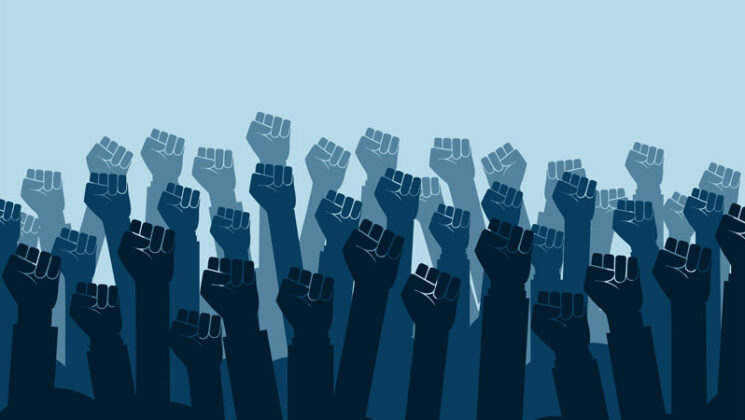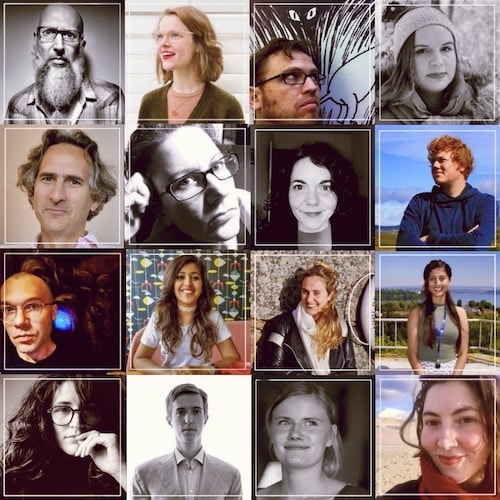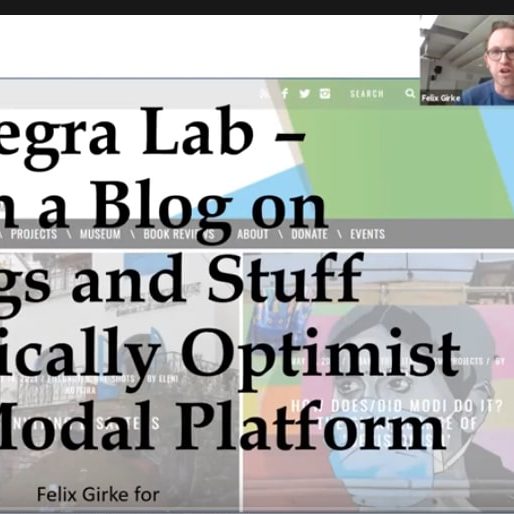Our students and colleagues often raise the question of what ‘resistance’ should look like in the current moment (in case this is being read in the future by alien anthropologists researching the civilisation of a dead planet, our current moment is the moment in history when humanity decided to give genocide, authoritariansim and climate decimation a go).
One start might be listening as a means of connecting and learning. Listening to all the different struggles that are on the cusp of our awareness as a step towards building international resistance. In times of global fascism where governments learn from each other effectively, those of us who are not invested in, for example, occupation of another country or the burning through of all the earth’s natural resources, struggle to find basis for collective action: a collective action that joins the dots rather than siloing different ‘issues’. It is not only that solidarity with those who struggle against occupiers in war zones from Palestine to Syria, Kurdistan and Ukraine is often disconnected. It’s also that the broad appeal of something like climate change will remain as transformative as a McDonald’s paper straw if it chooses not to listen to those who point out the environmental catastrophe caused through the dropping of bombs. Listening is not only an act of comprehending those who have mobilized for different causes, however, it is also an act of being together in a way that can transform people.
Resistance does not (always) have to be spectacular, especially when risk is not equally distributed.
Collective action is not only about the change we want to see outside but also the transformation that we experience in acting together: the transformation of vulnerabilities into collective strength as we decide together, act together, and work things through together. Our respective vulnerabilities should not incapacitate, paralyze or debilitate us. As Judith Butler argues in Precarious Life, vulnerability can be the ground of our collective action and even a source of strength. It requires working through how to navigate and reconfigure vulnerabilities in ways that are strengthening not only for specific communities (though that is key) but also collectively with those engaged in different struggles and who experience different forms of oppression. Fascism attempts to erase certain differences and accentuate other differences in order to repurpose existing resources; a mode of organized crime that operates through the creations of vortexes that grind the experiences of struggle into dust and push us apart. The specificities of how to stand against the vortex are difficult to anticipate, but maybe the first steps of what we need to do are not that complicated: stand together and recognise forms of structural oppression and vulnerabilities without allowing these differences to congeal into borders between us.
Resistance does not (always) have to be spectacular, especially when risk is not equally distributed. It can consist of forms of sabotage-lite, calls for accountability, and strategic use of existing political structures. Freedom is neither something we have nor something we should take for granted. Instead, like human rights, it becomes real in the world when it is on the verge of disappearing and when we take a collective stand to resurrect it. What’s clear is that pretending to be BBFs with the fascists won’t help. The centrist liberal apologists who bend the knee – from Keir ‘collective punishment for Palestinian civilians’ Starmer to Columbia ‘no space for free thinking amongst students’ University – are fast learning that no amount of ring kissing will keep them safe. Moreover, such brown nosing not only fails to stop tyranny, but also enables it through the normalising of acquiescence.
You don’t have to know everything about a particular topic and be entirely right on everything to take action. You’re no expert on constitutional law but you think governments shouldn’t imprison or deport people for speaking their minds? You’re not sure whether renewables can provide enough energy for your society’s current needs but you’ve experienced scorching heat, torrential floods or uncontrollable wildfires? That’s probably – hopefully – enough for you to take action. The nuanced analyses of the past and the present that those of us engaged in intellectual pursuits produce can provide sources of inspiration for the next page of our history, but it’s a future history that we have to write together as we listen, embrace vulnerabilities and set the grounds for collective action.





